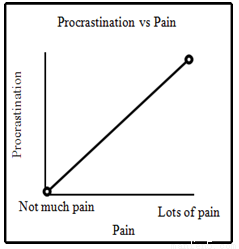题目内容
根据句意填写单词,用所给单词的正确形式填空
1.“Don’t!” cried Oliver, ___________ (挣扎). “Let go of me!”
2.Oliver was __________ (铤而走险的) with hunger and bitterness.
3.They suffered from starvation, yet their welfare was of no c_________ (关心、在意) to the taxpayers.
4.They were photographed i__________(单个地)and then as a group.
5.The __________ (共识) of most people is that Canto pop is good music.
6.Last week they s____________(交换) places and will repeat the switch weekly.
7.The medical team ____________ (consist) of 10 doctors and 5 nurses will set out at dawn.
8.I didn’t intend her ____________ (see) the painting until it was finished.
9.I bought a ____________ (一份) of USA Today from a street-corner machine.
10.She turned to face him; her anger was a____________ (显然) gone.
10th Annual Hospitality (餐饮服务业)Student Conference
Tuesday March 4, 2016
Conference Schedule
8:00-8:45 Breakfast and welcome 8:45-9:15 Dat Phan, Comedian 9:15-9:25 Break 9:25-10:10 Tour 1 10:20-11:05 Tour 2 11:15-12:00 Tour 3 12:00-1:00 Lunch, Prize giveaways and wrap-up (总结) |
Tour 1: Tour of Hotel and Resort
Go on a behind-the-scenes tour of Barona, a luxury hotel and resort. Your tour guides will be actual employees who can give you the inside sight about running this great business and what it takes to get an exciting career in hospitality industry.
Tour 2: Cooking demonstration
Who want to be a top chef? Watch and smell as award winning chefs demonstrate their cooking art and share some of their kitchen secrets with you.
Tour 3: Opportunities fair
Take advantage of this opportunity to speak with various professionals from hotels, schools and other businesses in the hospitality industry. Learn about education and career options; and don’t forget to stop by the interview skills workshop.
Dat Phan
Dat was born in Saigon, Vietnam and grew up struggling and poor in California. He worked at Barona Resort before he made it big as a comedian!
His culturally insightful (发人深省的)comedy inspects ridiculous stereotypes, and shared his experience of being a regular American guy with a Vietnamese heritage (文化遗产). He has been honored as “The Top 10 Most Influential Vietnamese-Americans”.
Dat Phan aims to create a more positive image of Asian-Americans in the world of entertainment and Hollywood. “We want to be seen as more than just martial artists (武术家), or bad stereotype roles in American TV & Movies.”
1.The majority of the people present at the conference are probably _______.
A. tourists from other cities
B. students who plan to work in hotels or restaurants
C. news reporters of a local TV station
D. managers who wish to take in some new staff
2.What is the right order of the activities?
a. Enjoy the funny show.
b. Give away prizes.
c. Watch a cooking demonstration.
d. Talk about interview skills.
e. Take a tour around an expensive hotel and resort.
A. a―e―c―d―b B. a―d―c―e―b
C. d―e―a―c―b D. c―d―b―a―e
3.All the following can be learnt from the conference EXCEPT ______.
A. how to run a big hotel and resort
B. what it takes to be a great chef
C. how to behave better in an interview
D. what jobs are available in the local hotels


